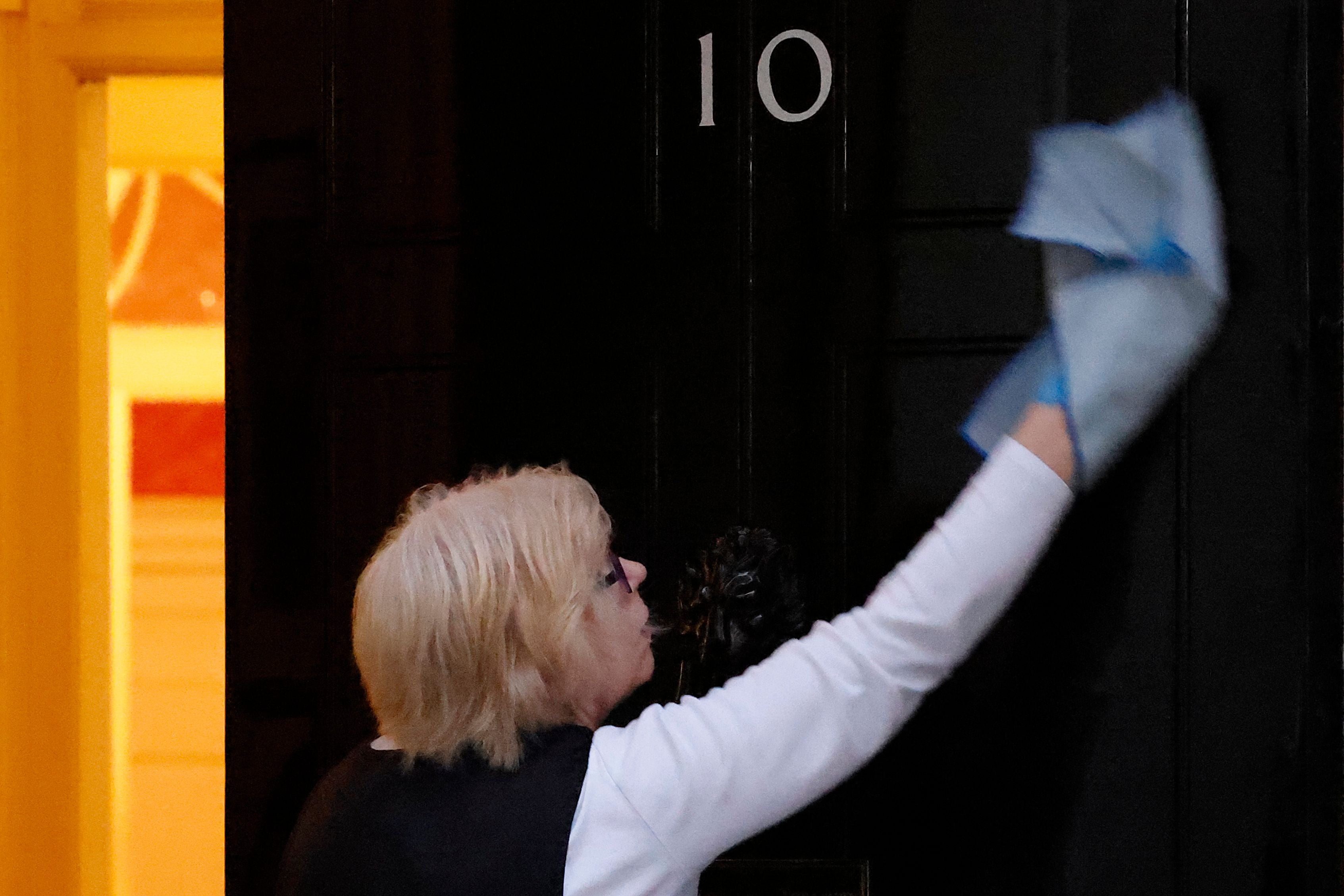How you treat cleaners and other service staff says everything about you
It’s reflective of a culture that sees people as commodities and the self as central, psychologists say


It’s widely accepted (and discussed, at least amongst my friendship group) that if you are thinking of dating someone, pay attention to how they treat those who serve them: cleaners, waiters, porters, receptionists, delivery drivers. It tells you a lot about what kind of person they are. This theory even has a name (and a Wikipedia page): the Waiter Rule. A word, then, to those in Downing Street.
We now know, thanks to Sue Gray’s damning report, that a “culture of disrespect” was allowed to proliferate inside No 10, far beyond what we have already heard (and seen) of the partygoing during lockdown; the booze and the fighting and being sick. We have discovered a different and peculiar unpleasantness – reports from those who work hardest and matter most, who probably have the longest hours and the most arduous tasks of all of Downing Street: its cleaners and security guards.
We have read abhorrent acounts of how one cleaner had to scrub red wine from a wall after a raucous Christmas party that violated Covid restrictions, as well as multiple examples of what Gray calls the “unacceptable” treatment of people in low-paid jobs serving the government – including the tragic death of Emanuel Gomes, a cleaner at No 10, who died with Covid in April 2020 without having access to a sick pay scheme. The United Voices of the World (UVW) union says he felt “forced” to turn up for work despite being ill because “he could not afford” to take a day off.
For all the good it will do, Boris Johnson has apologised for the treatment of Downing Street personnel during the illegal gatherings. But what prompts people to treat service staff badly – and what can we learn about the psychology of those who do?
To me, if we’re calling a spade a spade, it looks a hell of a lot like entitlement. But I wanted to find out from the experts, so I spoke to a clinical psychologist, who wished to remain anonymous. What she told The Independent is striking.
“It’s reflective of a culture that sees people as commodities and the self as central,” she said. “A dehumanisation takes place that aids a sense of superiority and power. The invisibility of others who work in the service industry may indicate a person who has had so much provided for them that they don’t ‘see’ what work goes into accommodating them. It’s no different to them that it’s a person, a human being – they see them in the same way that they might see an air conditioning unit and expect it to work effectively to keep them cool.
“This likely has a significant impact on the ability to empathise or build connections outside of self-serving, transactional relationships. If you don’t serve your ‘purpose’, you become worthless or invisible – and are treated as such.”
Raytheon CEO Bill Swanson once said, aptly, that you should watch out for people who have a “situational value system”. He said we should all pay attention to those who can “turn the charm on and off depending on the status of the person they are interacting with”. This, according to psychologists, can prove telling – because our value systems are often revealed through our behaviour, and influence what kind of choices we make. Relevant, then, to those who are bringing in the laws of the country.
To keep up to speed with all the latest opinions and comment sign up to our free weekly Voices Dispatches newsletter by clicking here
Of course, it could be as simple as this: if someone mistreats someone else – anyone else (though particularly someone who is paid less than they are) then they’re probably not a very nice person. It implies they care a lot about status, for one thing. To me, it’s a huge red flag if someone sneers at those they perceive as being “lower” or “less than”; or who finds it somehow “funny” to treat another human being badly. Take it from someone who knows.
I worked in the service industry in multiple guises before retraining as a journalist: at 16, I was on the checkouts at weekends at the local supermarket, where I found myself having to fend off the unwanted attention of customers twice (sometimes three times) my age.
At 18, I spent months after leaving school as a barmaid-turned-waitress in a local pub, and it still might be the hardest job I’ve ever had – not only did I have to put up with the wandering eyes and wandering hands of the regulars, but groups of young people who found it “funny” to act up in front of each other, leaving a pile of coppers as a tip and asking me inappropriate questions, just to see me blush.
Then there was the year I spent working double shifts – as a receptionist in a five star hotel, where the A-list customers (including visiting international football and rugby teams) were the worst behaved; on the tills at Virgin Records. I also spent long and aching hours on my feet as a retail assistant in a clothes shop.
The thing I learnt from all of those jobs? You remember the good customers – the ones who are chatty and polite, friendly and who care about you. Those people get the best out of you anyway.
So if you want good service, it really is this simple: be kind. That’s something we could definitely do with in Downing Street.
Bookmark popover
Removed from bookmarks